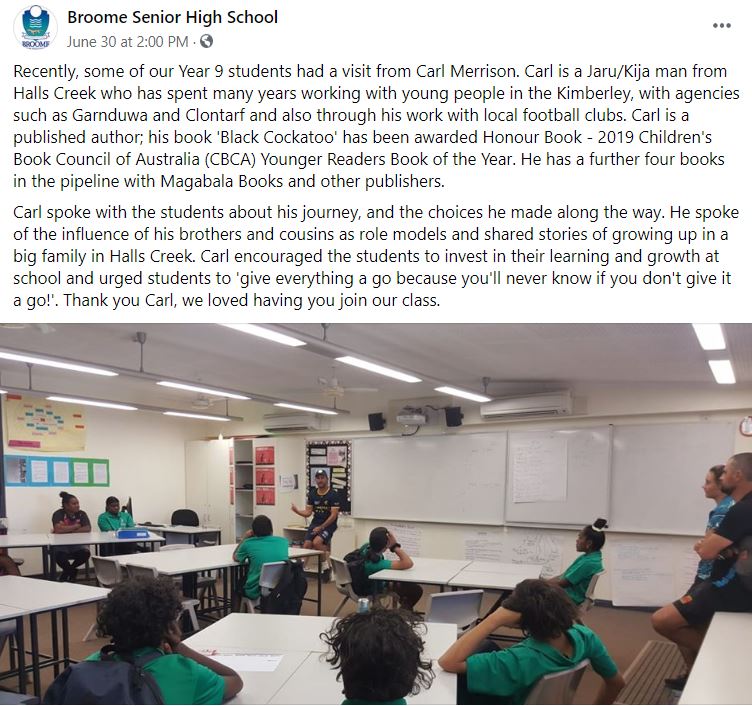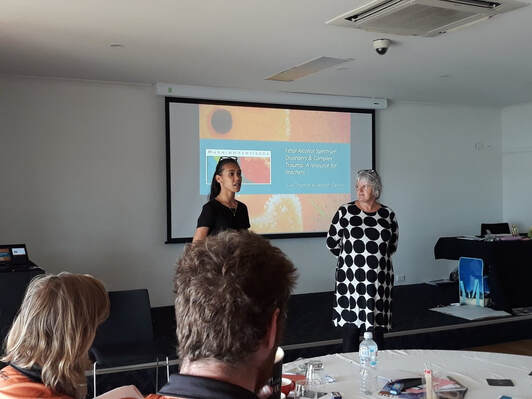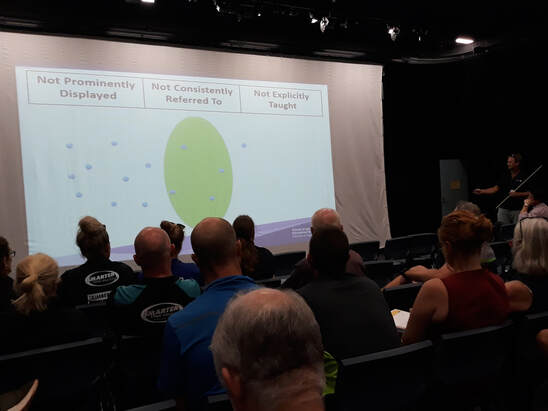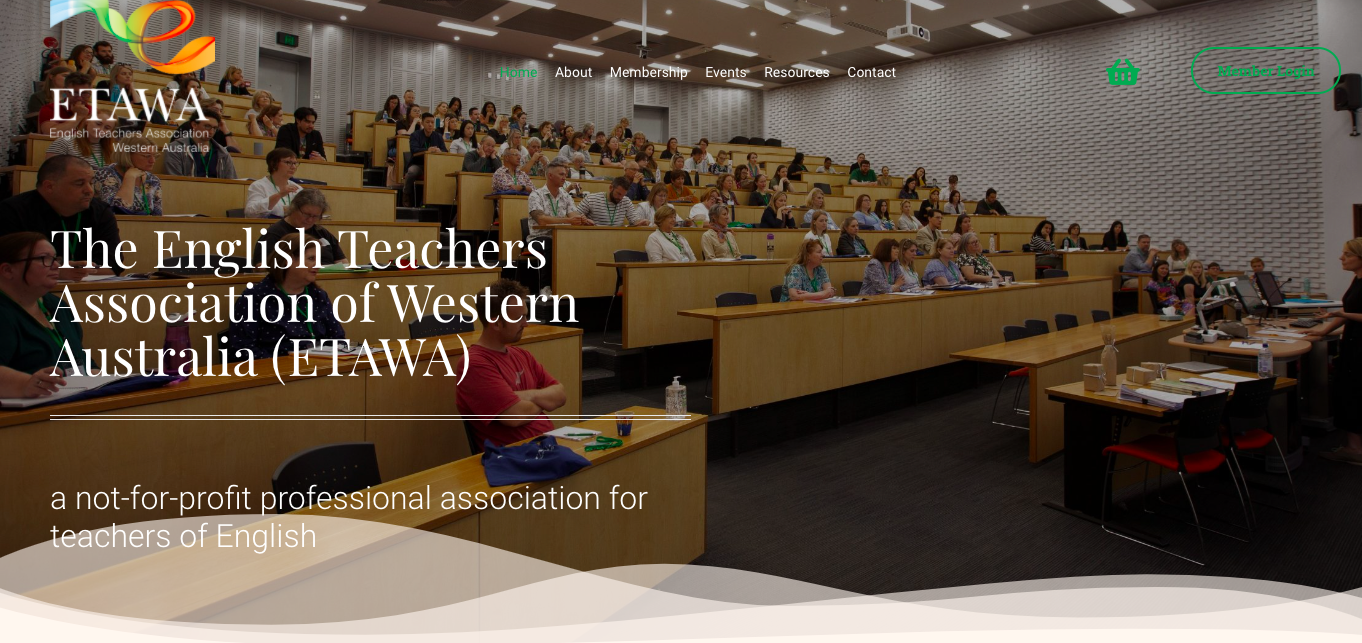Focus area 7.1 - Meet professional ethics and responsibilities.
Understand and apply the key principles described in codes of ethics and conduct for the teaching profession.
As an employee of the Department of Education, Western Australia, I practice teaching in accordance with the Department's Code of Conduct for the Teaching Profession. The central tenet of this code of conduct is employee adherence to a core set of values: learning, excellence, equity and care. As part of my commitment to reflective practice, I kept and continue to keep a teaching journal and recorded regular observations, as shown in the sample here, which explore how I live my professional values as a teacher.
Understand and apply the key principles described in codes of ethics and conduct for the teaching profession.
As an employee of the Department of Education, Western Australia, I practice teaching in accordance with the Department's Code of Conduct for the Teaching Profession. The central tenet of this code of conduct is employee adherence to a core set of values: learning, excellence, equity and care. As part of my commitment to reflective practice, I kept and continue to keep a teaching journal and recorded regular observations, as shown in the sample here, which explore how I live my professional values as a teacher.
Focus area 7.2 - Comply with legislative, administrative and organisational requirements.
Understand the relevant legislative, administrative and organisational policies and processes required for teachers according to school stage.
Having previously completed a unit in Principles of Inclusive Education, I fully understand disability legislation and my obligation to provide instruction to students on the same basis in accordance with the Disability Standards for Education, 2005. I worked with special needs assistants and ensured I differentiated content well enough so that all students could participate in a Universal Design for Learning approach.
In relation to school administrative policies, I have provided copies of all relevant paperwork, including first aid certificates, working with children check and university credentials. I have made it a priority to become aware of all school policies including those around assessment, ICT and mandatory reporting.
Understand the relevant legislative, administrative and organisational policies and processes required for teachers according to school stage.
Having previously completed a unit in Principles of Inclusive Education, I fully understand disability legislation and my obligation to provide instruction to students on the same basis in accordance with the Disability Standards for Education, 2005. I worked with special needs assistants and ensured I differentiated content well enough so that all students could participate in a Universal Design for Learning approach.
In relation to school administrative policies, I have provided copies of all relevant paperwork, including first aid certificates, working with children check and university credentials. I have made it a priority to become aware of all school policies including those around assessment, ICT and mandatory reporting.
Focus area 7.3 - Engage with parents/carers.
Establish and maintain respectful collaborative relationships with parents/carers regarding their children's learning and well-being.
Throughout my teaching practice, I have consistently sought to place relationships at the forefront of my priorities. I have established contact with parents early upon commencing teaching contracts as demonstrated here . I have encouraged parents to meet with me during formal parent-teacher evenings and where meetings were held, I have consistency followed up these meetings with a phone call or email to solidify the connection.
As part of my commitment to working collaboratively with families, I continuously seek to engage with parents and carers in the educative process. An email chain shown here, demonstrates how I have worked with a parent to identify a gap in learning for a particular student, outlined strategies to meet that need and reported back to the parent on progress towards that goal.
In keeping with principles of the PBIS model, I have regularly contacted parents and carers via phone or email to report positive behaviour from students, as demonstrated here and here.
Establish and maintain respectful collaborative relationships with parents/carers regarding their children's learning and well-being.
Throughout my teaching practice, I have consistently sought to place relationships at the forefront of my priorities. I have established contact with parents early upon commencing teaching contracts as demonstrated here . I have encouraged parents to meet with me during formal parent-teacher evenings and where meetings were held, I have consistency followed up these meetings with a phone call or email to solidify the connection.
As part of my commitment to working collaboratively with families, I continuously seek to engage with parents and carers in the educative process. An email chain shown here, demonstrates how I have worked with a parent to identify a gap in learning for a particular student, outlined strategies to meet that need and reported back to the parent on progress towards that goal.
In keeping with principles of the PBIS model, I have regularly contacted parents and carers via phone or email to report positive behaviour from students, as demonstrated here and here.
Focus area 7.4 - Engage with professional teaching networks and broader communities.
Participate in professional and community networks and forums to broaden knowledge and improve practice.
Throughout my teaching practice, I have consistently participated in professional and community networks and forums where available. This has included, for example, attending local conferences on the impact of trauma on learning (see photo below for evidence) and participating in teacher meetings on positive behaviour (see photos below for evidence). In keeping with 21st century approaches to learning, I have also joined and participated in digital teaching forums including PETAA, Scootle and Facebook groups which have been created to discuss specific issues including attachment, teaching in Western Australia and Foetal Alcohol Spectrum Disorder and Complex Trauma. Where a gap has been identified in my professional knowledge, I have taken advantage of training offered by the Department of Education, including training around improving outcomes for students learning English as an Additional Language or Dialect, as shown here.
To promote local leadership in the classroom and build strong community links between class and community, I have sought to engage with local organisations, to incorporate local perspectives and involve local leaders in class experiences where possible. One example of this, was inviting a local representative from Garnduwa, to join our Year 9 class to speak with students about his experiences as a young person growing up in the Kimberley. Snippets from this experience were subsequently shared on the school's Facebook page, as shown in the image below.
Participate in professional and community networks and forums to broaden knowledge and improve practice.
Throughout my teaching practice, I have consistently participated in professional and community networks and forums where available. This has included, for example, attending local conferences on the impact of trauma on learning (see photo below for evidence) and participating in teacher meetings on positive behaviour (see photos below for evidence). In keeping with 21st century approaches to learning, I have also joined and participated in digital teaching forums including PETAA, Scootle and Facebook groups which have been created to discuss specific issues including attachment, teaching in Western Australia and Foetal Alcohol Spectrum Disorder and Complex Trauma. Where a gap has been identified in my professional knowledge, I have taken advantage of training offered by the Department of Education, including training around improving outcomes for students learning English as an Additional Language or Dialect, as shown here.
To promote local leadership in the classroom and build strong community links between class and community, I have sought to engage with local organisations, to incorporate local perspectives and involve local leaders in class experiences where possible. One example of this, was inviting a local representative from Garnduwa, to join our Year 9 class to speak with students about his experiences as a young person growing up in the Kimberley. Snippets from this experience were subsequently shared on the school's Facebook page, as shown in the image below.
In December, 2020, I won a scholarship to attend the English Teachers Association of Western Australia's Annual Conference (ETAWA) as depicted in the photograph below. Attending this conference provided an invaluable opportunity to engage with professional learning networks to improve practice. Following this conference, I delivered a presentation to my colleagues, sharing key insight I gained from this experience. This presentation is shown here. Furthermore, I reflected deeply upon this conference and wrote a submission to the ETAWA for publication in their bi-annual publication. This submission is shown here.




